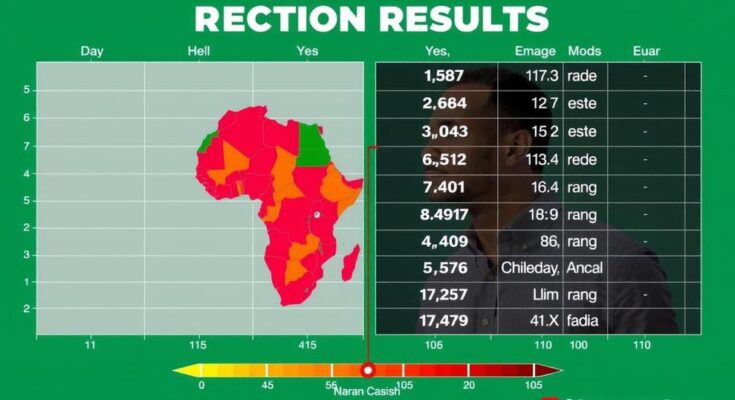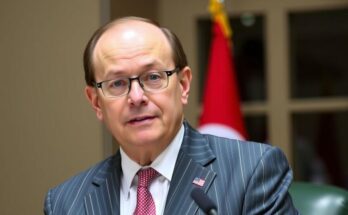The 2024 elections in Ghana resulted in the NPP losing power to the NDC, led by John Mahama, amid significant public dissatisfaction over the economy, high inflation, and unemployment. Major issues included allegations of government corruption and mismanagement. The NDC capitalized on this discontent, facilitating a substantial electoral shift. Historical trends indicate a consistent rejection of long-term ruling parties amid economic crises in Africa.
The recent elections in Ghana have led to the defeat of the New Patriotic Party (NPP), which had been in power for eight years under President Nana Akufo-Addo. The opposition party, the National Democratic Congress (NDC), led by former President John Mahama, was victorious amidst widespread dissatisfaction with the government’s handling of the economy. Factors contributing to the NPP’s loss include a severe economic crisis characterized by soaring inflation, high unemployment rates, and public discontent over governance issues such as corruption and mismanagement of resources.
Historically, no party in Ghana has maintained power for more than two consecutive terms since the onset of democratic elections in 1992. The NPP aimed to “break the eight” by securing a third term but failed to resonate with voters who were frustrated by persistent economic hardships, including high living costs. Despite the government’s claims of successful job creation and infrastructure development, many citizens felt disconnected from these achievements.
Political analysts note that the electorate’s perception of the NPP as ineffective in addressing critical issues led to their diminished support. A significant portion of the electorate, particularly young voters, expressed deep concerns over job availability and the burdensome tax environment that affected their quality of life.
Furthermore, allegations of corruption within government circles and poor handling of priority projects, such as the controversial national cathedral, fueled resentment towards the ruling party. The infrastructure that the government had promised did not translate into tangible benefits for the populace, leading to widespread calls for change.
In several regions, the NDC not only regained seats lost in previous elections but also saw substantial growth in support. This electoral shift, which was reflected in the margins of victory in key regions, demonstrated a clear rejection of the NPP’s claims and an endorsement of the NDC’s platform. The outcome of this election highlights a growing trend across Africa where incumbent parties face significant challenges amidst economic crises and public discontent.
The 2024 elections in Ghana mark a crucial shift in the nation’s political landscape, with the New Patriotic Party (NPP) being ousted after eight years in office. Historically, Ghana has not witnessed any party remaining in power for more than two consecutive terms following the establishment of democratic elections in 1992. Public sentiment in recent years has been heavily influenced by the deteriorating economic conditions, with inflation rates reaching alarming levels. Both governmental mismanagement and public dissatisfaction regarding living standards contributed to the NPP’s electoral defeat. The National Democratic Congress (NDC), led by John Mahama, capitalized on these sentiments, promising to address the critical issues plaguing the country, thereby appealing to a weary electorate. This election is part of a broader trend observed in African nations where incumbents have recently lost power amidst widespread public discontent.
The 2024 elections in Ghana signify a pivotal moment in the nation’s democratic journey, with the NPP’s defeat underscoring the electorate’s demand for accountability and effective governance. The overwhelming public response to economic hardship and allegations of corruption reflects a strong desire for change. As Ghana joins other African nations experiencing similar electoral shifts, the implications of this election resonate strongly, pointing towards the necessity for political parties to address the needs and concerns of their constituents transparently and effectively.
Original Source: www.bbc.com




